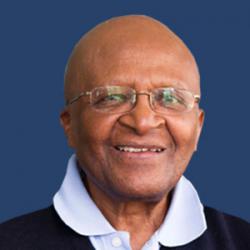Rights demand strong institutions
Reflecting on the 60th anniversary of the adoption of the Universal Declaration of Human Rights, Desmond Tutu and Mary Robinson argue in The Guardian that ideals must be supported by effective institutions.
Sixty years ago this week, the UN adopted the Universal Declaration of Human Rights, the first international proclamation of the inherent dignity and equal rights of all people. To this day, the declaration remains the single most important reference point for discussion of ethical values across national, ideological, and cultural divides.
Yet the declaration's enlightened vision of individual freedom, social protection, economic opportunity and duty to community is still unfulfilled. Tragically, genocide is happening again, this time in Sudan.
A heightened security agenda since the attacks on the United States in September 2001 has included attempts to legitimise the use of "extraordinary rendition" (the movement between countries of prisoners and suspects without due process of law) and torture.
For women around the world, domestic violence and discrimination in employment are a daily reality. Minorities suffer stigma, discrimination, and violence in developed and developing countries. The right to information is denied to millions through censorship and media intimidation.
Poverty is our greatest shame. At least one billion very poor people, 20% of humanity, are daily denied basic rights to adequate food and clean water. While gross inequalities between rich and poor persist, we cannot claim to be making adequate progress toward fulfilling the ambitions set down 60 years ago.
As we mark this anniversary, the question is how to protect the inherent dignity and equal rights of all people. A key part of the answer lies in more effective systems of accountability, so that rights are recognised and laws enforced. Yet if we take a long, hard look at what has been achieved over the past six decades - and at what remains resistant to all our efforts - then it is also clear that this will not be enough.
The deepest challenges of discrimination, oppression, injustice, ignorance, exploitation, and poverty cannot be addressed through the law or policy alone. If we are to make reforms sustainable and ensure that they truly protect human rights, we need effective institutions of government.
Poorly equipped or corrupt institutions are a primary obstacle to the effective protection and promotion of human rights. In recent years, billions of dollars have been invested by governments, businesses, and private philanthropy in fighting poverty in poor countries. Millions of people have benefited. Yet those involved have recognised publicly that without greatly improved institutional capacity - for example, well-resourced and competent local and national health systems - further progress will be limited.
Similarly, billions of people are today unable to access or protect their legal rights because judicial and law enforcement systems are impoverished or lack integrity. Changing this will require massive investment in courts, judicial officials, police, prison systems, social ministries, and parliaments, as well as in national human rights institutions and other official monitoring bodies.
Nothing on this anniversary is more important than to urge our leaders to recognise the scale of the task and commit to sustained action to build institutional capacities to protect human rights, starting in their own countries. As world leaders race to address the current global economic crisis, it may seem unrealistic to be calling for large and long-term investments of this kind.
But, while stabilising the international financial system is important, doing so won't solve wider challenges of governance. Human rights cannot be realised in the absence of effective institutions. Where courts and police are corrupt, overburdened and inefficient, basic civil rights will be violated. Where social ministries are underresourced, disempowered, or lack qualified staff, basic rights to adequate health care, education, and housing will remain unfulfilled.
Even the world's richest nation, the United States, struggles to implement much-needed reforms for some of its most important social institutions - including its health and education systems. Think how much more difficult this challenge is for the world's developing nations. Making progress is a great test of political maturity. It is, nevertheless, essential if we are to make rights a reality for all.
Over the past year, as members of The Elders - a group of leaders formed under Nelson Mandela's inspiration - we have been working with a range of partner organisations to send a human rights message to the world through the Every Human Has Rights Campaign. Thanks to this collective effort, tens of thousands of individuals - and millions more through schools, community groups, trade unions, and civil society organisations - have come to identify again, or for the first time, with the goals of the UDHR. This is reason for hope.
We have better tools to communicate and demand justice than any generation before us. We have global goals and shared destinies that connect us. What is needed now are leadership, resources, a greater sense of urgency, and commitment to the long-term efforts that must dedicated to ensuring that the rights enshrined in the Universal Declaration are not only recognised universally, but respected as well.
Copyright Project Syndicate, 2008.
FEATURED ELDERS

Mary Robinson

